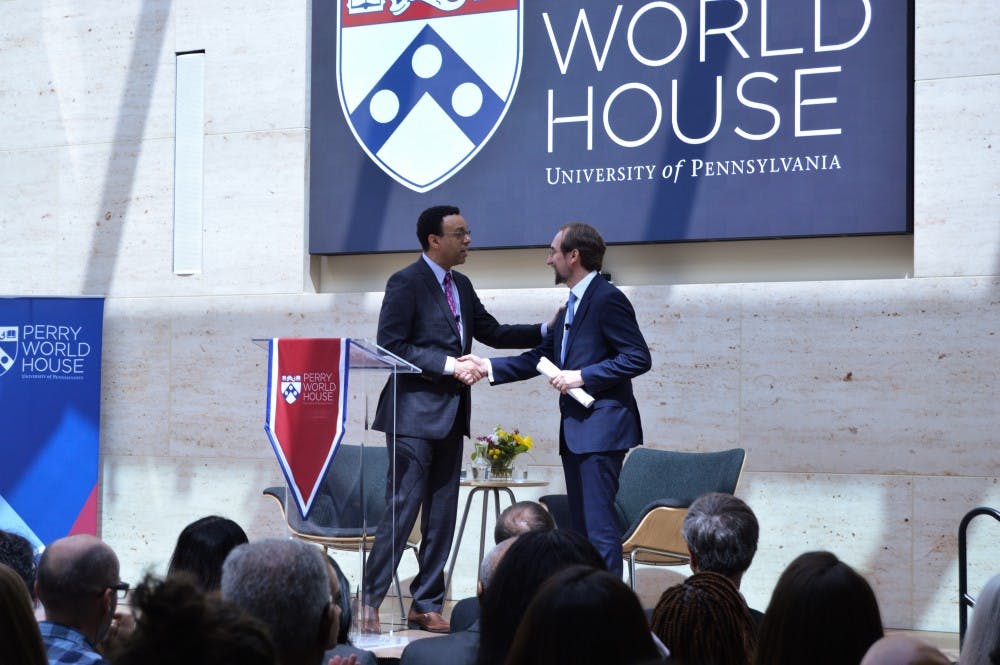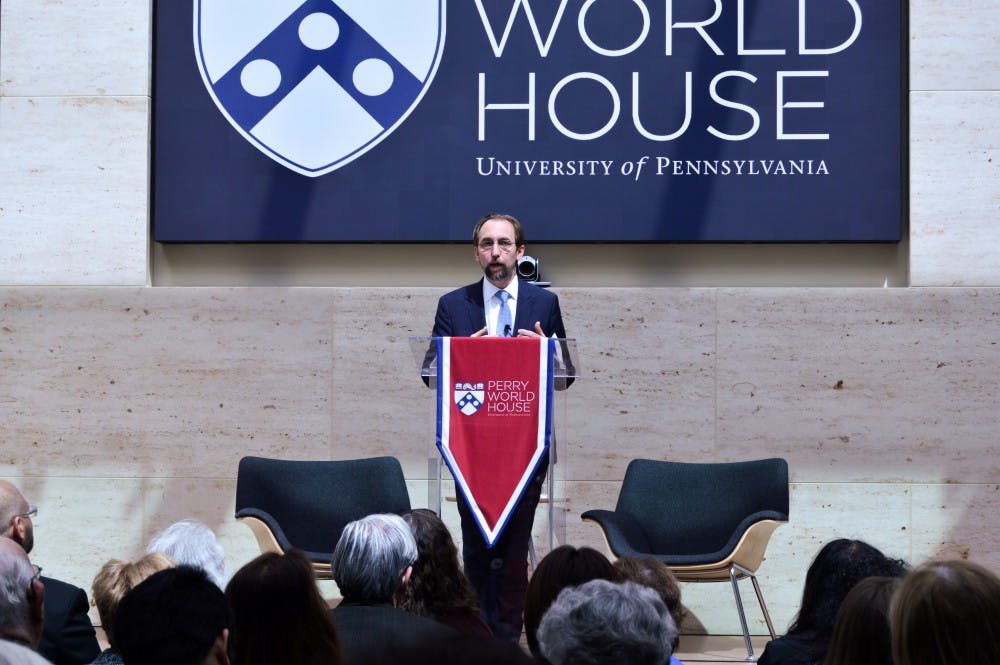
United Nations High Commissioner for Human Rights Zeid Ra'ad Al Hussein spoke at the Perry World House to open a discussion on the global refugee crisis.
The Perry World House hosted a colloquium titled “Prospects for Reform on International Migration and Refugees” on April 10. The conference focused on discussing methods for reform on the issue of international migration along with expressing the need for global human rights. Penn Provost Wendell Pritchett introduced the high commissioner’s keynote speech.
“When we envisioned Perry World House a few years ago, we envisioned a vibrant global community,” Pritchett said. “One that brings in expertise on international challenges from inside and out of academia. Our guest today confidently has the expertise to address the fact that universal human rights are under siege around the world.”
Al Hussein’s address focused on the concrete ways that human rights are currently being degraded internationally.
“We see attacks on the Universal Declaration of Human Rights stemming not just from authoritarian or autocratic leaders, populists, or demagogues,” he said. “We see it also from cultural radicalists who have thrusted forth arguments that were once disregarded.”
Al Hussein proceeded to explain the need for global caution in preserving human rights. He used internet access as an example of a development people take for granted.
“What makes us think that the Internet will never go away? Because it’s global and we all have access?” he asked. “Europe once thought a general European war was impossible. Northern Europe was globalized, there was free trade and open migration. Then, there were two world wars. Humans easily can destroy everything, and we’re a moment away from returning to pre-industrial conditions.”

Al Hussein also expressed that an open dialogue about a topic like human rights would be outlawed in many of the countries that he has worked with throughout his career, emphasizing the need to value discussion opportunities like this conference.
Along with Al Hussein’s address, other guest speakers were invited to participate on a panel about the role of journalists in reporting on refugees and migration. Another panel focused on the global concern for population displacement.
Second-year student at the Penn Law School, Emily Rieburn, expressed her admiration of Al Hussein’s speech.
“I really liked how specific Zeid’s address was,” she said. “He continuously gave specific numbers, such as how small the whole migration is compared to the stable global population. He also gave stories about women that he’s met with that are imprisoned for nothing more than just a miscarriage. He sees a common value in victims despite the common West and East divide we see.”
College sophomore Lucy Corlett similarly conveyed her enthusiasm for the event.
“I came here looking for answers because I wonder a lot about what’s being done in the world to combat mass genocide and other atrocities,” she said. “Zeid really gave me those answers. The only way to combat these issues is by speaking out and through young people enacting change. It was such an affirmation for me.”
The Daily Pennsylvanian is an independent, student-run newspaper. Please consider making a donation to support the coverage that shapes the University. Your generosity ensures a future of strong journalism at Penn.
Donate






